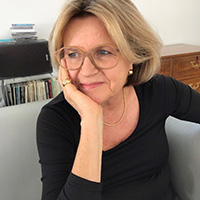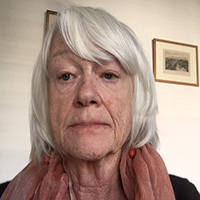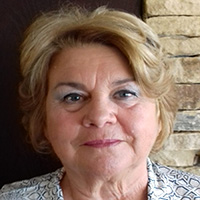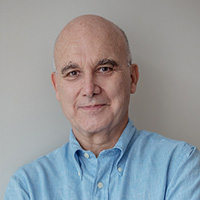Loss and mourning in times of COVID-19
Panellists: Cordelia Schmidt-Hellerau, Lesley Caldwell, Marina Altmann
Moderator: Eduardo Gastelumendi
This webinar is in English.
Since its beginning, psychoanalysis has undergone theoretical-clinical transformations in the face of subjective changes and the new demands that arise from them. We have all recently experienced significant changes that affect both ourselves and our patients. Therefore, the aim of this webinar is to think about what type of changes analysts have experienced related to being in contact with a new and unknown virus. A virus that kills mostly old people, that is very contagious, and that can lead to isolation and loneliness for those who contract it. If death is such a difficult thing to assimilate in the western world, if farewells are so painful and difficult to go through, how can we face these situations during moments of Covid-19. The pandemic has restricted our rituals; wakes cannot be held and social distancing affects funerals. How mourning and loss is processed is what we will think about together during this webinar.
 Cordelia Schmidt-Hellerau (download webinar handout)
Cordelia Schmidt-Hellerau (download webinar handout): Cordelia Schmidt-Hellerau, Ph.D. is a Training and Supervising Analyst of the Boston Psychoanalytic Society and Institute as well as of the Swiss Psychoanalytic Society. She has published numerous papers and three books on metapsychology, clinical issues and applied psychoanalysis. Her 2018 publication of Driven to Survive at IPBooks was a finalist of the American Board & Academy of Psychoanalysis Book Prize. She has published her first novel, Rousseaus Traum, in German and will publish her second novel, Memory’s Eyes, in 2020 at IPBooks. Since 2017 she is the chair of the IPA in Culture Committee. She works in private practice in Chestnut Hill by Boston.
 Lesley Caldwell (download webinar handout)
Lesley Caldwell (download webinar handout): Lesley Caldwell is a psychoanalyst of the British Psychoanalytic Association( BPA) in private practice in London. She is a European representative for COWAP, a TA for the Independent Child and Psychotherapy Training( IPCAPA) and a member of its Training analysts’ Committee. She is Hon Professor in the Psychoanalysis Unit at UCL where she has taught on the Master’s and doctoral programme and she continues to supervise doctoral students. From 2010 to 2016 she coordinated the Unit’s Interdisciplinary Programme. With Helen Taylor Robinson she is joint general editor of The Collected Works of Donald Winnicott ( OUP, 2016) and is responsible for the more than 100 new entries( 2020) uploaded to the online edition of the CW now freely available online as part of Volume12. She is especially interested in analytic communication and the use of silence in the session.
 Marina Altmann (download webinar handout)
Marina Altmann (download webinar handout): Psychoanalyst, Master in Psychoanalysis, and Children and Adolescent Psychoanalyst (IPA). She is a full member and training analyst of the Uruguayan Psychoanalytic Association. She is currently Chair of the Clinical Research Subcommittee of the IPA Research Committee (since 2017) and former Chair of the Clinical Observation Committee (2010-2017). She has received the Sigourney Award (2017). She won the Biannual Exceptional Contribution Award from the Research Committee of the International Psychoanalytical Association (2001) for her research in verbal and non-verbal interactions in the mother–baby psychotherapeutic process. She has published chapters in books, and papers in both Spanish and English.
 Eduardo Gastelumendi
Eduardo Gastelumendi: Eduardo Gastelumendi is past-President and past-Vicepresident of the Peru Psychoanalytic Society. He is a training analyst at the Institute, member of the Training Committee, of the Selection of Candidates Committee, and of the Ethics Committee. At FEPAL he has served as Treasurer and through FEPAL’s Interchange Program has visited Pelotas Psychoanalytic Society. At IPA, he has served as Co-Chair for Latin America of the Allied Professions Committee, Chair for Latin America of the 51st Congress Committee in London and is presently Co-Chair for Latin America of the Application Societies Committee. He has been visiting analyst through CAPSA program to the Polish Psychoanalytical Society.